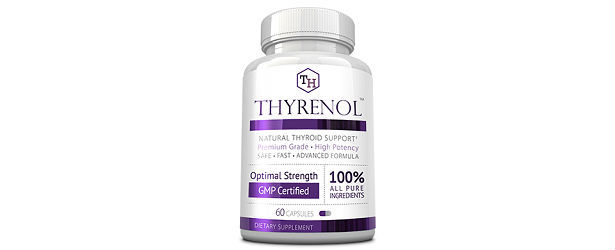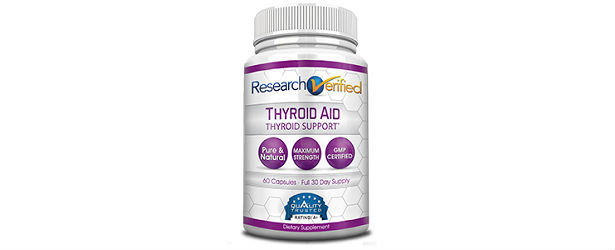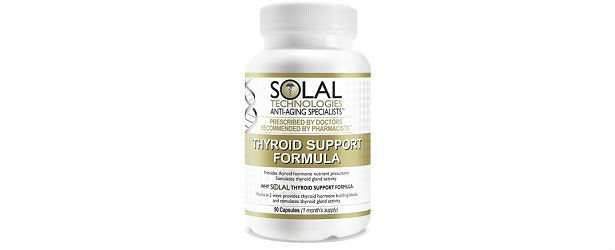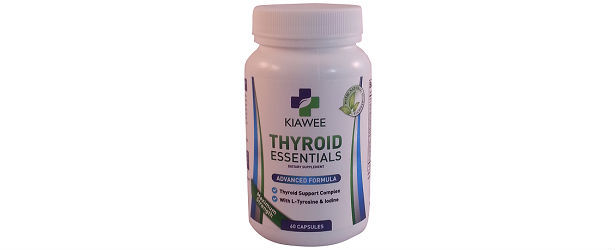Thyroid Disease Diet
Your thyroid’s health may depend on the food you eat. The thyroid is a gland in the neck that creates hormones that help supply energy and metabolism. There are some diseases that affect the thyroid. They include hyperthyroidism that speeds your metabolism; hypothyroidism, responsible for weight gain and low levels of energy; and cancer of the thyroid. A good diet along with medical treatment, like surgery or thyroid medication, helps lessen symptoms as well as increasing your health overall.
Vegetables that are Thyroid-Friendly
Many vegetable are high in antioxidants. They support the body’s capability to defend it from disease and infection. Cauliflower, Brussel sprouts and broccoli are examples of cruciferous vegetables which actually may conflict with the function of your thyroid. If you are a victim of thyroid dysfunction, eat other vegetables such as tomatoes, seaweed, bell peppers and squash. These will also help keep your weight in check which is always healthy.
 Fruits that are colorful
Fruits that are colorful
There are many antioxidants and fiber in colorful fruits. Antioxidants help the body work correctly and also protect it from damage. If you eat more fruit, you may reduce your chances of getting cancer. It will also aid your body in fighting cancer. They also contain a great deal of minerals and vitamins. They are also a great alternative to processed candy and desserts. You can choose from cherries, berries, kiwi, citrus fruits, papaya, cantaloupe, plums, mango, red grapes, and plums. Eat them whole instead of the juice.
Whole Grains
Whole grains are good for you because they have a great effect on your levels of blood sugar. It also helps your heart and your digestive tract. If you get rid of gluten in your diet, you may help get rid of symptoms of Hashimoto disease which is a type of hypothyroidism. There might also be a connection between thyroid disease and celiac disease. It is a good idea to put gluten-free products such as wild rice, gluten-free oats and brown rice into your routine.
Cold-Water Fish
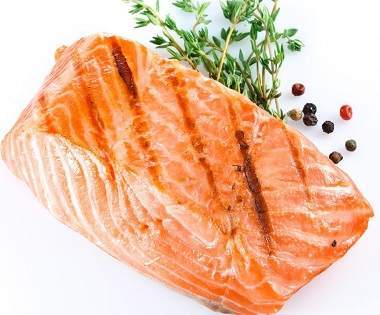 Salmon, herring, albacore tuna, lake trout, halibut, sardines, and flounder have omega-3 in them. Omega-3 is an essential fat that is linked to heart health and good brain function. The University Of Maryland suggests if you have thyroid disease, you should eat items containing omega-3 to reduce inflammation in addition to raising your immunity. Cold-water fish will provide other nutrients besides protein sources that are high in fat, like processed or red meats.
Salmon, herring, albacore tuna, lake trout, halibut, sardines, and flounder have omega-3 in them. Omega-3 is an essential fat that is linked to heart health and good brain function. The University Of Maryland suggests if you have thyroid disease, you should eat items containing omega-3 to reduce inflammation in addition to raising your immunity. Cold-water fish will provide other nutrients besides protein sources that are high in fat, like processed or red meats.
Iron & Iodine Rich Foods
Hypothyroidism causes anemia in many people. It is recommended to eat foods that are rich in iron such as lean meat, enriched grains, and lean meat. They also provide good amounts of zinc and selenium, which helps your thyroid to work better. If your thyroid isn’t working properly, there may be an iodine deficiency.
You can eat eggs, spinach and shrimp to help get extra amounts of iodine. Iodized salt will also help increase your iodine intake.
Calcium rich Foods
People with thyroid problems often have a greater chance of osteoporosis. Make sure you get some low-fat milk to increase your intake of calcium, which will help prevent osteoporosis. Yogurt and low-fat cheese are great alternatives for calcium as well.

 Subscribe Now
Subscribe Now

 The usual reason for hypothyroidism is Hashimoto’s thyroiditis as reported by the Thyroid Association of America. This happens when there are cells that make up the gland in the thyroid that get attacked by the cells that make up the immune system of the body. The thyroid cells are destroyed which creates a deficiency of thyroid hormones. The glands of the pituitary then produce TSH which is a hormone that stimulates the thyroid and make additional hormones of the thyroid. This causes goiter which is extreme inflammation in the thyroid.
The usual reason for hypothyroidism is Hashimoto’s thyroiditis as reported by the Thyroid Association of America. This happens when there are cells that make up the gland in the thyroid that get attacked by the cells that make up the immune system of the body. The thyroid cells are destroyed which creates a deficiency of thyroid hormones. The glands of the pituitary then produce TSH which is a hormone that stimulates the thyroid and make additional hormones of the thyroid. This causes goiter which is extreme inflammation in the thyroid.

 When the thyroid storm occurs, there is a large intensification in the heat the body produces. Fever is the trademark symptom of this disease. There was an article published in 2006 in a journal that emphasizes that how high the fever will indicate how severe they thyroid storm may be. Drs. Kenneth Burman and Bindu Nayak stated fever will give them important information as to how far the thyroid storm has progressed. Patients with this disease will profusely sweat in an attempt for the body to cool down.
When the thyroid storm occurs, there is a large intensification in the heat the body produces. Fever is the trademark symptom of this disease. There was an article published in 2006 in a journal that emphasizes that how high the fever will indicate how severe they thyroid storm may be. Drs. Kenneth Burman and Bindu Nayak stated fever will give them important information as to how far the thyroid storm has progressed. Patients with this disease will profusely sweat in an attempt for the body to cool down. A thyroid storm definitely reduces higher functions of the brain including reason, perception, judgement and comprehension. As the disease progresses, symptoms of a dysfunction of the central nervous system will occur. This will result in more confusion and agitation, along with psychosis and paranoia. This was stated by Drs. Leonard Wartofsky and Joanna Klubo-Gwiezdzinska in their article called “Thyroid Emergencies”. This was published by the Dept. of Critical Care Medicine at the University of Pittsburgh. If the thyroid storm is severe, the amount of disturbance of the mental faculties of the patient will be severe. Therefore, if there is a presence of psychosis or paranoia, there more than likely will be a severe emergency medical situation.
A thyroid storm definitely reduces higher functions of the brain including reason, perception, judgement and comprehension. As the disease progresses, symptoms of a dysfunction of the central nervous system will occur. This will result in more confusion and agitation, along with psychosis and paranoia. This was stated by Drs. Leonard Wartofsky and Joanna Klubo-Gwiezdzinska in their article called “Thyroid Emergencies”. This was published by the Dept. of Critical Care Medicine at the University of Pittsburgh. If the thyroid storm is severe, the amount of disturbance of the mental faculties of the patient will be severe. Therefore, if there is a presence of psychosis or paranoia, there more than likely will be a severe emergency medical situation.
 Added sugars like brown sugar, rice syrup, fructose, cane sugar, corn syrup, maltose and fructose, increase sweetness and calories but doesn’t benefit nutrition at all. Additional sugars also cause fluctuations in your energy level, mood and blood sugar. It also makes it harder to manage your weight and appetite. If you fill up on sugary foods, you don’t have room for naturally sweet items that are good for patients with hypothyroidism, like cherries and blueberries. In order to lower your intake of sugar, replace honey and sugar in coffee or tea with stevia. This is a sweet-tasting, calorie-free herb with
Added sugars like brown sugar, rice syrup, fructose, cane sugar, corn syrup, maltose and fructose, increase sweetness and calories but doesn’t benefit nutrition at all. Additional sugars also cause fluctuations in your energy level, mood and blood sugar. It also makes it harder to manage your weight and appetite. If you fill up on sugary foods, you don’t have room for naturally sweet items that are good for patients with hypothyroidism, like cherries and blueberries. In order to lower your intake of sugar, replace honey and sugar in coffee or tea with stevia. This is a sweet-tasting, calorie-free herb with 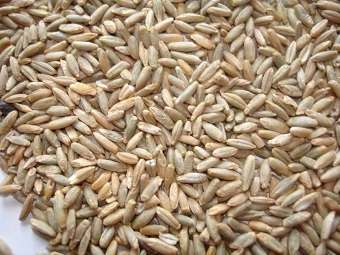 Wheat, rye and barley have a storage protein called gluten. There is a correlation between thyroid disease and gluten intolerance. An article published in the November, 2010 issue of “Today’s Dietician”, states that it may be difficult to notice a gluten intolerance if you are diagnosed with hypothyroidism. Many of the symptoms are the same including abdominal pain, digestive problems and bloating.
Wheat, rye and barley have a storage protein called gluten. There is a correlation between thyroid disease and gluten intolerance. An article published in the November, 2010 issue of “Today’s Dietician”, states that it may be difficult to notice a gluten intolerance if you are diagnosed with hypothyroidism. Many of the symptoms are the same including abdominal pain, digestive problems and bloating.